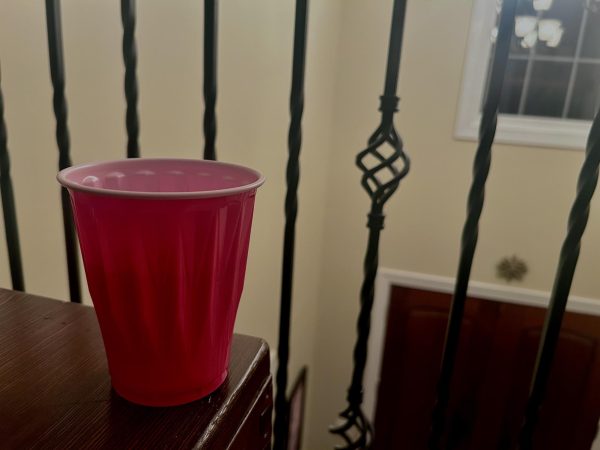You aren’t what you eat
Diet culture connects being skinny with worth and morality which means many people can spend their lives thinking they’re broken just because they don’t have the “ideal” thin body type.
As I scroll through my YouTube subscription box, I encounter various titles: “What I Eat in a Day to Lose Weight” or “Hacks to Look Skinnier” or “How to Get A Beach Body Fast.” There are tips and tricks on how to lose weight fast all across the internet. I’m constantly bombarded by people talking about counting calories, carb-free diets, intermittent fasting, etc. — all phrases originating from diet culture.
Diet culture is a system of beliefs that worships thinness and equates it to health and moral virtue. Diet culture’s beginnings date all the way back to Ancient Greece. The Greek culture emphasized certain ideals about how bodies should look that are still present today. The Greeks praised the male body which was traditionally a picturesque, slender, muscular body. Any person who had this body was put on a pedestal. Women in Ancient Greece would ‘diet’ to try and achieve this body type, but they rarely could. This resulted in a succeeding culture that values dieting but not for the purpose of getting healthier. Most people who diet do it to get thinner and therefore seem more attractive. A misconception is created that dieting all leads to happiness but that isn’t something attained from weight.
Diet culture is a cycle that Western culture has gotten swept into. According to many dietitians, including Christy Harrison, our society unconsciously believes the skinnier you are the more inherent value you have. The media is constantly saturated with thin people, whether it’s in magazines or TV shows. Producers behind the scenes force a certain aesthetic on their clients that has been known to plague Hollywood for decades. Showcasing thinner bodies is important but the lack of body-type diversity is staggering. Everybody wants to look like people they see in the media. It’s in our nature to want to fit in with what’s popular and advertising a body type only a small portion of the population can attain is damaging to self-esteem.
It’s in our nature to want to fit in with what’s popular and advertising a body type only a small portion of the population can attain is damaging to self-esteem.
My mom has never been a small woman. She has felt the brunt of fatphobia even from her own family ever since she could remember. In adulthood, this led to her going through the damaging cycle of dieting to lose weight and rampages of eating traditionally ‘unhealthy’ food condemned by society. I could see the guilt in her eyes every time she’d participate in this disorderly eating. When I got older, I noticed myself falling into the same practices.
Western culture has such a focus on food that it consumes people. People will always want what they can’t have, so attaching negative words to certain foods based on presumed health benefits makes people want it even more. If nobody ever makes that chocolate cake seem like a treat, people won’t feel the need to indulge in it. If someone does end up eating something considered “unhealthy” it doesn’t mean that they have any less value or should be treated as lesser. Food is just food.
Even if someone does stay within the societally made ‘perfect diet’, there are many more factors that play into how someone looks. If someone lives below the poverty line, they’re lucky if they can afford something from the Dollar Menu, let alone $15 organic avocado toast with kombucha every day. Genetic variations also play a huge role in how fast someone’s metabolism is and how fat distributes. Being thin is really just luck of the draw.
There’s nothing wrong with wanting to get in shape or finally mustering the motivation to hit the gym. My issue with diet culture comes from the obsessive attitude it fosters, and the ‘healthy’ ideological nature it is often cloaked in.















N • Aug 16, 2021 at 3:53 am
Those What i eat in a day videos couldn’t feed a mouse.
Sage Cooley • Nov 14, 2019 at 10:02 pm
Great work Daijah!
Bridget Snow • Nov 12, 2019 at 5:59 pm
Hello, great post!